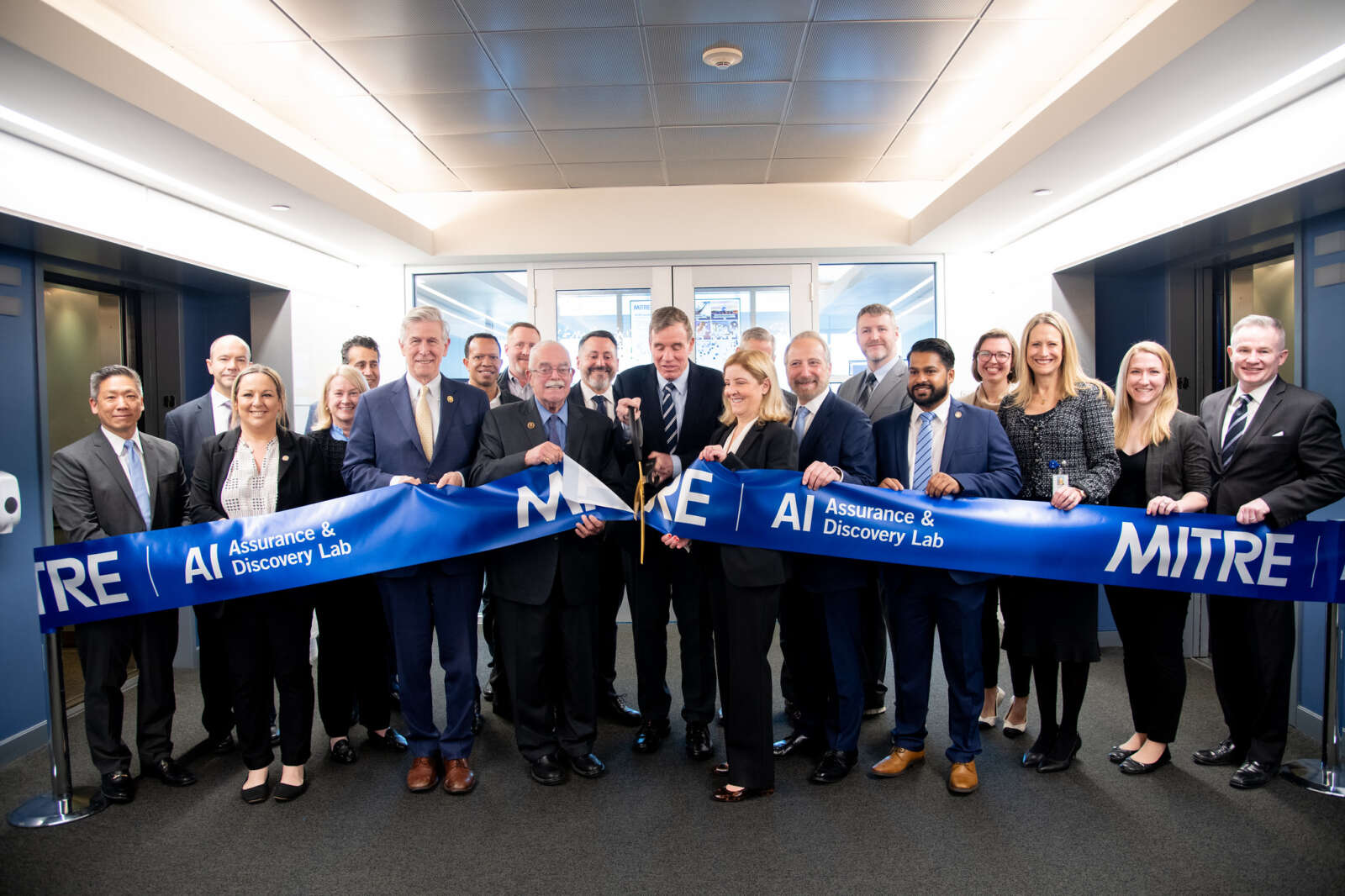
When you have concerns about an artificial intelligence-based technology, who are you going to call? For many federal government agencies, the answer is now the Mitre Corporation.
The not-for-profit research organization launched a new AI Assurance and Discovery Lab at its Tysons headquarters yesterday (Monday) with a ribbon-cutting ceremony attended Virginia Sen. Mark Warner and Reps. Gerry Connolly and Don Beyer.
Staffed by Mitre’s scientists and engineers, the lab will help federal agencies and, in the future, private companies assess the risks, security and effectiveness of AI systems that could be used in health care, national security, transportation and other fields, according to a press release.
“Government use of AI will have consequential impacts on the nation and world,” Mitre Senior Vice President and Chief Technology Officer Charles Clancy said. “…However, in adopting these systems, we also need to mitigate risks. Providing an independent assessment of the security, safety, and efficacy of AI systems will play a critical role toward helping government and business realize the transformational power of AI in benefits processing, intelligence analysis, autonomous vehicles, and more.”
Clancy added that the lab is envisioned as “a blueprint for a national network of AI assurance facilities.”
Founded in 1958 in Bedford, Massachusetts, where it still maintains a headquarters, Mitre was started by MIT to develop and manage an air defense system designed to detect potential Soviet missiles. Now bringing in a reported $2.2 billion in revenue, the contractor has helped build everything from facial recognition tools for the FBI to a contact-tracing system used during the COVID-19 pandemic, according to a Forbes profile.
The new lab inside the Mitre 4 high-rise at 7525 Colshire Drive will provide a space for testing AI technology, which is already being used by federal agencies to analyze drone photos, study volcanoes and match job seekers with openings, among other reported examples.
“The opening of MITRE’s AI Assurance and Discovery Lab is an exciting development in the most fertile frontier of technological progress — extracting maximum value from AI while mitigating some of its risks,” Warner said in a statement. “We need to have an all-hands-on-deck approach to studying and unleashing the potential of AI, and I look forward to seeing the discoveries and progress the lab will be able to make in this critical field.”
According to the press release, the lab’s physical space can be customized “for specific mission scenarios and workflows.”
The facility will be supported by more than 200 staff members from Mitre’s AI and Autonomy Innovation Center, according to AI Assurance Solutions Lead Miles Thompson, who oversees the lab. The space can accommodate 50 people at a time and “thousands of remote connections.”
“Federal agencies, and soon private companies, can bring AI-enabled systems to the lab to explore potential risks including whether they perform effectively, consistently, and safely in real-world contexts,” the release said. “MITRE will also use the lab to evaluate factors such as whether systems are secure and free from harmful bias, and allow users to control how their information is used.”
Connolly said Mitre’s lab will be “invaluable” for helping the government adopt AI “with the proper guardrails in place,” while Beyer noted that it suggests Northern Virginia will “continue to lead the way on tech innovation.”
Fairfax County Public Schools Superintendent Dr. Michelle Reid is urging national elected officials to step up their efforts to safeguard local schools from cybercrime threats.
During a Northern Virginia Chamber of Commerce event in Tysons on Monday (March 11), Reid asked Sen. Mark Warner about Congress’s strategy to address privacy threats to FCPS students and staff and other communities nationwide that are susceptible to ransomware attacks.
“Every division in this country, right now, we’re all being asked to stand up cybersecurity departments,” she told Warner during a question and answer session. “Our department is actually larger than a number of our instructional departments.”
Warner visited the Northern Virginia Chamber of Commerce’s offices at the Silverline Center (7900 Westpark Drive) to discuss several issues, expressing confidence in the passage of a second federal spending bill later this month and emphasizing the necessity of Congress providing aid to Ukraine.
As chair of the Senate’s National Security and International Trade and Finance Committee, he also spoke passionately about the need for protection against cyber threats both domestically and abroad, with a particular focus on social media platforms like TikTok.
The U.S. House of representatives is expected to vote on a bipartisan bill this week requiring TikTok to either be divested from its Chinese owner ByteDance or face a nationwide ban. Although it’s not clear whether the Senate is on the same page, Warner said he supports putting up “guardrails.”
“I think TikTok is a national security issue,” he told a room full of attendees. “…People make the money off of TikTok as social influencers. I’m all for that. It just bothers me that this company is ultimately controlled by the Communist Party of China.”
The emphasis on cybersecurity led Reid and others to question the need for increased federal regulation of emerging technologies, including artificial intelligence, calling current regulations insufficient to protect schools which have had to stand up their own cyber security departments as a result.
“I want my focus to be on making sure all our third graders are learning to read, and our eighth graders are able to complete algebra 2,” Reid said. “…I’ve been asked this year for another 20 positions for cybersecurity, with a conversation about [how] we have to protect our 180,000 students’ data or 40,000 staff members, and I’m not a cybersecurity expert.”
In September 2020, FCPS was hit by a cyber attack from a hacker group called MAZE, which compromised personal records, including the social security numbers of several hundred employees. The group threatened to leak employee records and other sensitive documents unless the division paid a ransom.
FCPS told NBC4 that it had hired cybersecurity experts and the FBI was investigating the attack.
Last November, FCPS faced another significant data breach after it mistakenly disclosed tens of thousands of confidential student records to a parent. The school system wrapped up its investigation into the leak the following month.
However, Warner pointed out that even if the bill were to pass, it would just a “band-aid.”
“I don’t have a great answer because even though we keep getting better, the bad guys keep getting better,” he said.
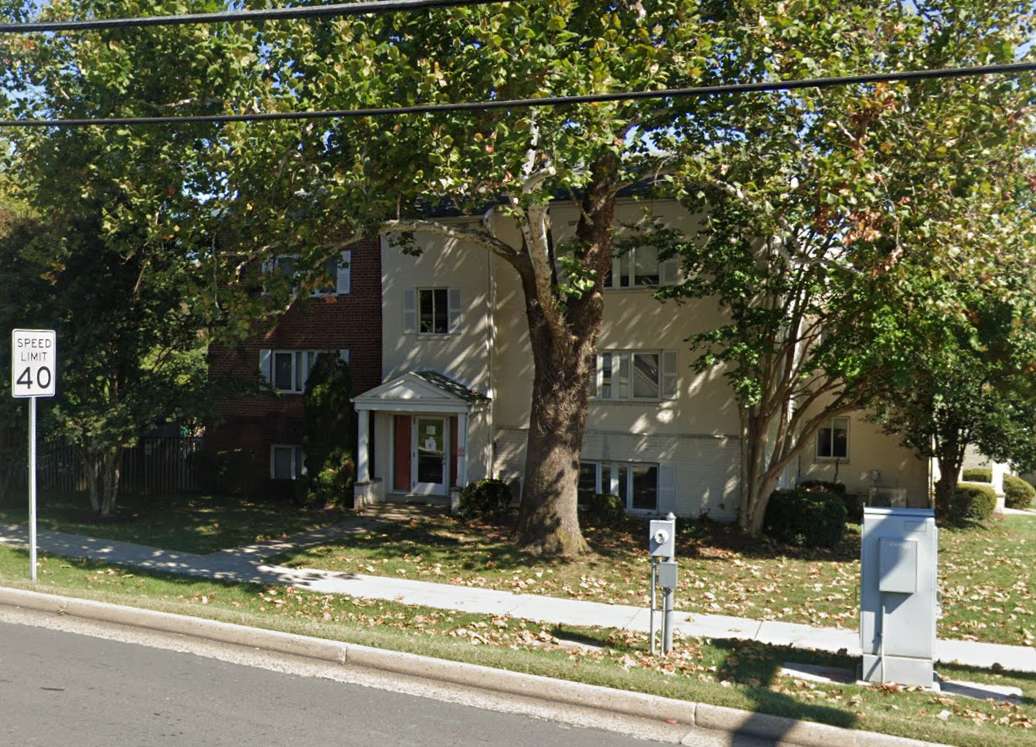
(Updated at 3:35 p.m.) Congress has passed another short-term budget package, averting a partial shutdown of the federal government just hours before a midnight deadline.
In addition to funding the Justice Department, Housing and Urban Development, and other key agencies, the slate of bills passed 75-22 by the Senate on Friday (March 8) includes $12.7 billion in “pork” — money designated for local projects requested by lawmakers for their constituents.
In a joint press release, Sens. Tim Kaine and Mark Warner announced that Fairfax County and other Virginia localities will be among the beneficiaries of the more than 6,600 projects that got funding, per the Associated Press.
“I’m proud that we secured funding for 105 community projects across Virginia that will improve transportation, upgrade water infrastructure, support health care, and more,” Kaine said. “I urge Congress to take up the rest of the government funding bills as soon as possible.”
According to breakdowns provided by Warner’s and Rep. Gerry Connolly’s offices, the biggest allocation for Fairfax County is $4.1 million “to fund a new homeless and domestic violence shelter for families.”
The county’s existing domestic violence and family shelters have exceeded their useful lives, but instead of building new facilities, the Fairfax County Redevelopment and Housing Authority is planning to convert an existing “extended stay” hotel that will be able to house about 50 families a day.
“Site acquisition activities are ongoing, with the goal of securing a location that is well-served by transit, and close to jobs and services,” FCRHA spokesperson Allyson Pearce said.
Connolly’s office says the site “will entail combining rooms, creating service and office space, and other changes to the existing hotel setup,” noting that converting an existing building instead of constructing a new one will enable the county “to deliver this essential, brand new facility years earlier than might otherwise be accomplished.”
The county has two shelters specifically for people fleeing domestic violence — Artemis House and Bethany House — and two shelters that accommodate people with children — the Katherine Hanley shelter outside Centreville and the Patrick Henry shelter in Seven Corners.
The Fairfax County Board of Supervisors approved plans in August 2022 to replace the Patrick Henry shelter with supportive housing after some delays related to land acquisition challenges.
The appropriations package also includes funding for several road and pedestrian projects:
- Spring Street widening from four to six lanes between Herndon Parkway and Fairfax County Parkway ($1 million)
- Fox Mill Road and Pinecrest Road intersection improvements in Herndon ($850,000)
- Silverbrook Road and Lorton Road intersection improvements ($850,000)
- Sidewalk on Ninian Avenue and along Bush Hill Drive to improve safety and accessibility for Bush Hill Elementary School students in Rose Hill ($850,000)
- Gunston Road shared-use path from Julia Taft Way to the Pohick Bay Golf Course entrance in Lorton ($500,000)
- Compton Road bicycle and pedestrian path from the Bull Run Special Events Center access road to the Cub Run Stream Valley Trail in Centreville ($500,000)
- Stone Road trail from the I-66 interchange to an existing trail along southbound Route 28 in Centreville ($500,000)
The Fairfax County Department of Transportation applied for federal grants last summer to fund the Bush Hill and Compton Road projects. Read More
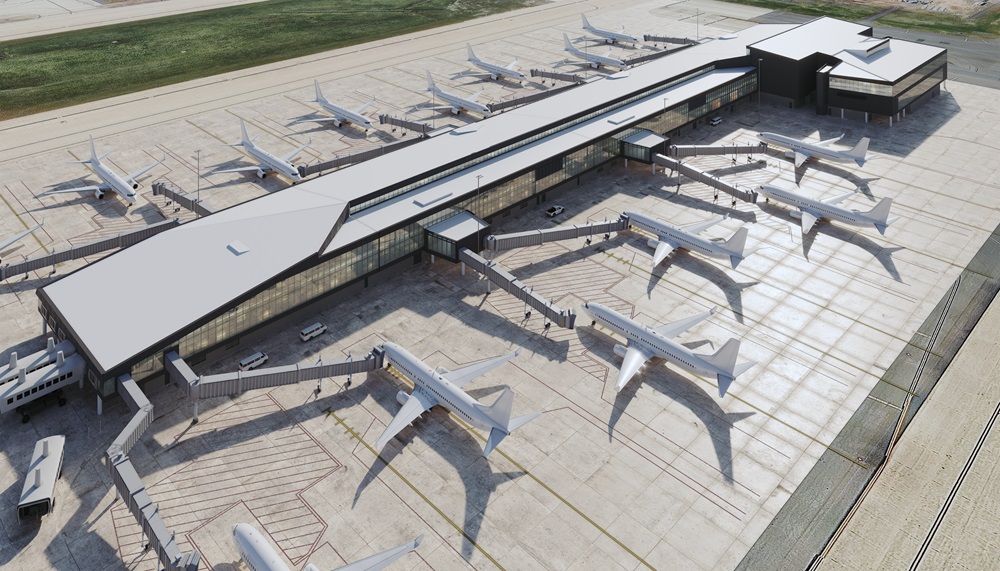
A planned 14-gate concourse at Dulles International Airport received a major federal lift this week.
Yesterday, Senators Mark Warner and Tim Kaine announced that the Tier 2 Concourse East project will get $35 million in funding from the Bipartisan Infrastructure Law that Congress passed in 2021.
The funds will help finance the 400,000-square-foot terminal building, which will provide a direct connection to the Aerotrain that helps customers move around the airport and a direct connection to Metro’s Silver Line station at Dulles.
“Dulles Airport is a beacon for both domestic and international flights, and has expanded rapidly over the past decade,” the senators said in a statement. “This funding will improve travel for passengers and ensure that the airport stays functional and safe while continuing to meet flight demands.”
The project broke ground in November, and preliminary construction activities are underway, Metropolitan Washington Airports Authority (MWAA) spokesperson Crystal Nosal confirmed.
“This project will be a significant step in upgrading aging facilities at the airport to enhance customer service and meet future infrastructure needs,” Nosal wrote in a statement.
A complete timeline for the estimated date of completion was not immediately available.
In its statement, MWAA said it was appreciative of the federal funds to support the concourse project, which is projected to cost between $500 million and $800 million in total.
MWAA announced in April 2022 that it had applied for $230 million in Federal Aviation Administration grant funding from a program created by the Bipartisan Infrastructure Law to help airports upgrade or replace aging facilities.
“We are grateful to our partners at United Airlines and members of the Northern Virginia congressional delegation as well as officials in the Commonwealth of Virginia and local governments for their strong support of this effort,” MWAA said. “We also thank regional business groups for their support in this grant process.”
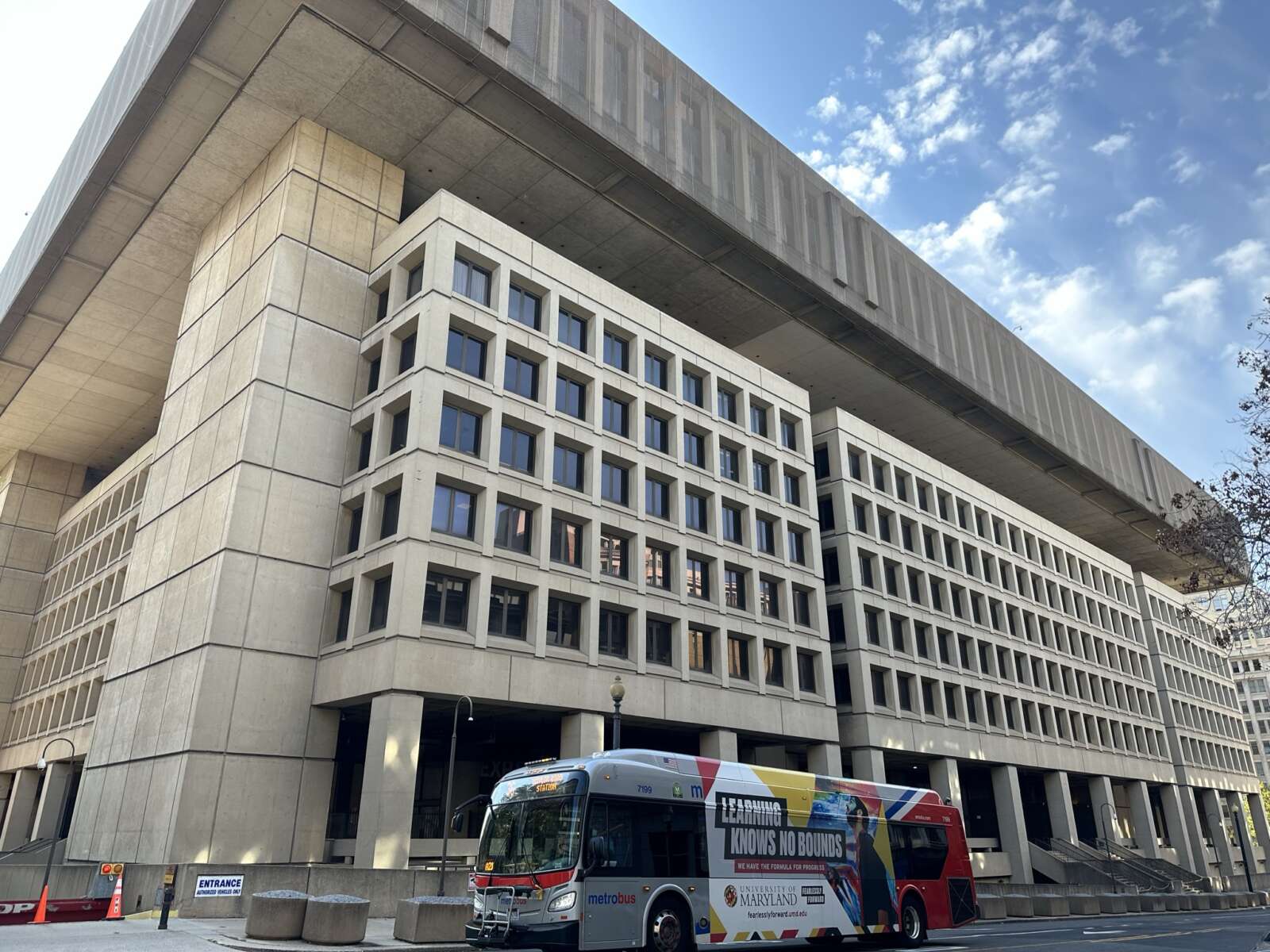
(Updated at 4:15 p.m.) The federal government has officially decided to review its decision to award the FBI’s new headquarters to Prince George’s County, Maryland, over Fairfax County.
The inspector general’s office for the General Service Administration has initiated an evaluation of the “process and procedures” that led the agency to choose a 61-acre site near the Greenbelt Metro station for the FBI’s future headquarters campus, according to a letter sent to Sen. Mark Warner (D-Va.) today (Thursday).
“We intend to begin this work immediately and will share with you and the relevant committees a copy of any report which may result from this evaluation,” acting Inspector General Robert Erickson wrote.
The GSA announced on Nov. 9 that the Greenbelt site had prevailed over the former Landover Mall in Prince George’s County and its own Franconia Warehouse Complex (6808 Loisdale Road) in Springfield, concluding a combative search that spanned three presidential administrations.
Local, state and Congressional representatives in Virginia quickly blasted the decision, arguing that the GSA should’ve followed a panel recommendation that identified the Springfield site as the “most advantageous.” Those criticisms coalesced into a call for an investigation after a leaked letter showed that FBI Director Christopher Wray had opposed the Greenbelt location and raised conflict-of-interest concerns.
Wray suggested former GSA Commissioner of Public Buildings Nina Albert may have interfered with the process to favor the Greenbelt site, which is owned by Metro, her previous employer. The GSA disputed Wray’s claims, noting that it had reviewed Albert for possible ethics conflicts in 2021 and found that her history with Metro wasn’t disqualifying.
Warner and fellow senator Tim Kaine welcomed the inspector general’s announcement of an investigation in a joint statement with Virginia’s House of Representatives delegation, including Reps. Don Beyer, Gerry Connolly and Jennifer Wexton.
Given the overwhelming evidence suggesting that the General Services Administration (GSA) administered a site selection process fouled by politics, we agree that an inspector general investigation is the appropriate next step. We applaud the inspector general for moving quickly and encourage him to move forward to complete a careful and thorough review. In the meantime, the GSA must pause all activities related to the relocation until the IG’s investigation is complete.
A spokesperson for the GSA’s Office of the Inspector General confirmed the office has started an evaluation of the headquarters site selection in response to the request from members of Congress, which it is taking seriously.
“All inspectors general regularly receive requests to conduct oversight from Members of Congress and must regularly decide whether the subject matter of the request supports directing OIG resources to answer some, none, or all of the issues raised in the request,” the office said in a statement. “GSA OIG’s decision to start an evaluation reflects the importance of the FBI headquarters project and is consistent with our past work in this area.”
Currently located at 935 Pennsylvania Avenue NW in D.C., the FBI has been seeking a replacement for the aging J. Edgar Hoover Building for more than a decade now. The GSA initiated a search in 2012, but it got put on hold during Donald Trump’s presidency.
In a subsequent review, the Justice Department’s inspector general determined that the Trump administration’s push to keep the FBI headquarters in D.C. was not influenced by “improper considerations or motives.”

(Updated at 4:10 p.m.) Virginia’s elected leaders may not agree on issues like abortion access or education, but they remain united by the conviction that the Commonwealth would be a better host than Maryland for the FBI.
After coming together to pitch a Springfield warehouse as the best site for the law enforcement agency’s new headquarters, Republican Gov. Glenn Youngkin joined Democratic senators Mark Warner and Tim Kaine and Virginia’s bipartisan House delegation last Thursday (Nov. 9) to blast the federal government for awarding the facility to Prince George’s County instead.
“It was outrageous,” Warner said in a press call earlier that day. “I mean, Virginia clearly was the better case. Virginia clearly was winning the first set of criteria. The fact that political pressure was put on to try to change the criteria really stunned me.”
Their outrage was echoed by Fairfax County Board of Supervisors Chairman Jeff McKay, who has called Springfield a “no-brainer” choice for the FBI’s new headquarters.
“This is profoundly disappointing and defies common sense,” McKay said in a statement to FFXnow. “The FBI headquarters should be strategically located near the training academy in Quantico, a short VRE ride from the Springfield site. This decision will not serve the long-term needs of the FBI or its employees nearly as well as the Virginia site would.”
The General Services Administration (GSA) announced Thursday that it has selected a 61-acre site near the Greenbelt Metro station in Maryland to serve as the FBI’s new headquarters campus, confirming an initial report by the Washington Post that came out a day earlier.
“The site was the lowest cost to taxpayers, provided the greatest transportation access to FBI employees and visitors, and gave the government the most certainty on project delivery schedule,” the agency said in a press release. “It also provided the highest potential to advance sustainability and equity.”
The decision appears to have concluded a years-long effort to replace the FBI’s aging hub at 935 Pennsylvania Avenue NW in D.C. that dragged on through four presidential administrations.
However, a previously confidential report released by the GSA showed that a site selection panel convened this summer had recommended the Springfield site — currently known as the GSA Franconia Warehouse Complex at 6808 Loisdale Road — as the one “most advantageous to the Government.”
The panel, which consisted of two GSA employees and one FBI employee, noted that the site had the advantage of already being owned by the federal government and had more capacity for an expansion than the Greenbelt site, which ranked the lowest of the three options on that criteria.
The Greenbelt site came out ahead of the former Landover Mall, also in Prince George’s, but it was the “least advantageous” when it came to the top criterion: proximity to other facilities critical to the FBI, including its training academy in Quantico and federal agencies in D.C. like the Justice Department.
Further raising eyebrows in Virginia, FBI Director Christopher Wray rejected the proposed relocation to Greenbelt in an Oct. 12 letter first reported by the Washington Post, stating that former GSA Commissioner of Public Buildings Nina Albert’s previous job with Metro created “unresolved” conflict-of-interest and transparency issues. Read More
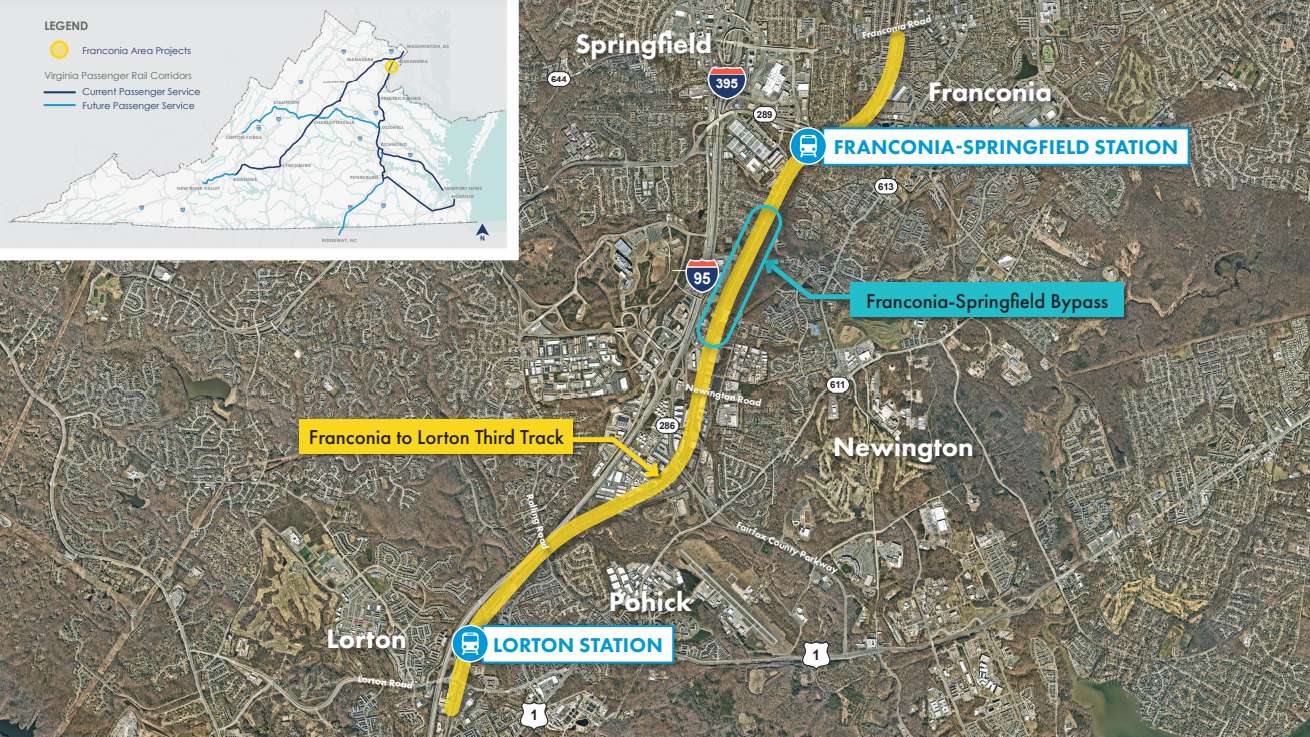
(Updated at 6 p.m.) A project to enhance the capacity of a key rail line through Fairfax County is chugging along, thanks to a major infusion of federal cash.
The Virginia Passenger Rail Authority has been awarded $100 million in federal funds to design and build a bridge that will allow Virginia Railway Express and Amtrak trains to cross over tracks approaching the Franconia-Springfield station (6880 Frontier Drive), Sens. Tim Kaine and Mark Warner announced yesterday (Thursday).
The bridge will relieve congestion and open up the possibility of additional passenger and freight service on the railway, which is one of Virginia’s busiest, according to the senators.
“Passenger rail is a vital connector for so many Virginians — carrying people to their work, their families, and their travel plans,” Warner and Kaine said in a joint statement. “We’re thrilled to see this funding make rail safer and more efficient for Virginians by addressing a critical chokepoint in a vital location, alleviating congestion for hundreds of Virginians every single day.”
Under development since 2021, the Franconia-Springfield Bypass will consist of a roughly 1-mile-long bridge that will carry passenger trains over two existing tracks for CSX freight trains just south of the rail station, VPRA officials said at a neighborhood meeting in July.
The bridge will have just one track, but it will be built to accommodate a future second track.
The project is part of a larger push by Virginia to improve its rail service between Fredericksburg and D.C. Other projects include an extension of a third track that currently starts in Alexandria for about six miles from Franconia to Lorton.
“Expanding passenger rail as an alternative to interstate travel is critical as traffic congestion in Northern Virginia continues to grow at an unsustainable rate,” VPRA Executive Director DJ Stadtler said. “Building the Franconia-Springfield Bypass will allow us to expand our state-supported rail service by alleviating train interference at the most congested point in Virginia…The bypass is key to providing Virginians with reliable, consistent, and convenient passenger rail service.”
According to VPRA, engineering on the bypass is scheduled to begin this year, with construction potentially kicking off in 2024 and finishing in 2026. VPRA has budgeted $405 million overall for the project, a spokesperson says.
The new federal funding comes from the Bipartisan Infrastructure Investment and Jobs Act that President Joe Biden signed into law on Nov. 15, 2021 and a fiscal year 2022 spending package, Warner’s office said.
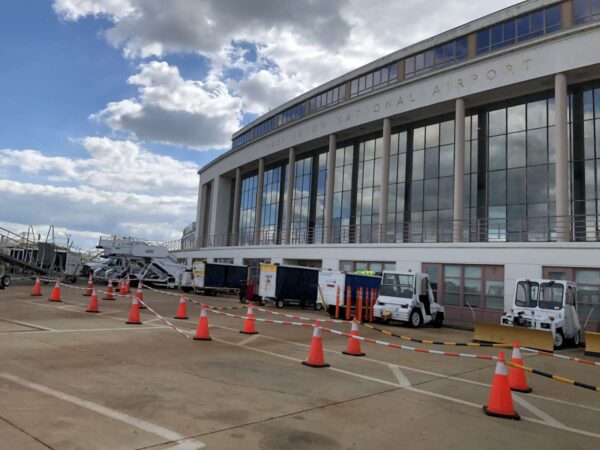
A proposal to add long-distance flights at Reagan National Airport has officially failed, to the relief of area representatives who feared it would undermine Dulles International Airport.
The House of Representatives rejected the proposal — which was included in a package of changes to the Federal Aviation Administration’s policies that passed overall — by a 229-205 vote on Wednesday (July 19).
Pitched by Rep. Burgess Owens (R-Utah), the proposal, which would have increased the number of flights that travel beyond 1,250 miles from National Airport, attracted significant pushback from local and regional officials.
In late May, the Fairfax County Board of Supervisors said the move would increase flight delays and have a detrimental impact on the local economy, arguing that the Arlington airport lacks the capacity of Dulles Airport just over the Loudoun County border.
The legislation pushed by the Capital Access Alliance, a coalition of business groups, continues a long-running battle over slot and perimeter rules originally enacted in the 1960s.
Rep. Don Beyer (D) called the defeat of the proposal a win for the region.
“This strong bipartisan vote of opposition should make it clear, as the Senate takes up their own FAA authorization, that proposals to weaken DCA’s slot and perimeter rules do not have majority support in the Congress,” Beyer wrote in a statement.
Fairfax County Board Chairman Jeff McKay lauded the county’s congressional delegation for defeating the proposal.
“It’s clear that this would have been an intrusive and unwelcome addition to DCA and appreciate the bipartisan approach to supporting residents of Fairfax County,” McKay said.
The Board of Supervisors had argued that the proposed changes would disrupt the balance between the region’s two major airports.
Sen. Mark Warner said he was happy to see “sanity win” in the House.
“I’ll continue fighting these changes — which would exacerbate delays and ruin folks’ travel plans — as we consider this legislation in the Senate soon, too,” Warner tweeted.
Glad to see sanity win in the House last night as they defeated chaotic changes to slot rules at DCA! I’ll continue fighting these changes – which would exacerbate delays and ruin folks’ travel plans – as we consider this legislation in the Senate soon, too.
— Mark Warner (@MarkWarner) July 20, 2023
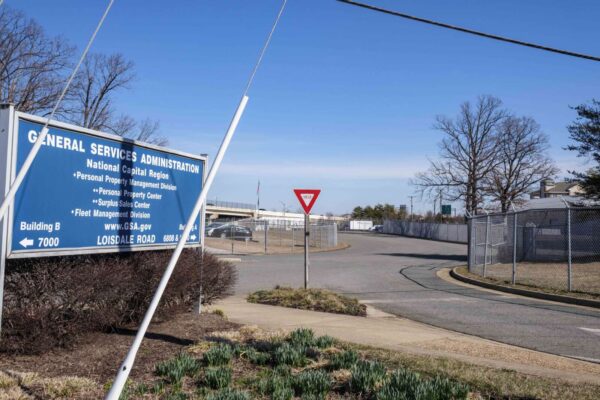
There has been another change in criteria for determining where the new FBI headquarters will go, prompting annoyance and even anger from several local officials.
Late last week, the General Services Administration (GSA) announced that it will now weigh cost and “advancing equity” as factors of higher importance when deciding if the new FBI headquarters will end up in Springfield or one of two sites in Prince George’s County, Maryland, per an updated site selection plan.
“The consultations with the delegations provided valuable feedback, and helped us refine our plan to maximize value for the FBI and the public,” said GSA commissioner Nina Albert in a press release. “While the core elements of the site selection plan remain the same, we have updated the plan to incorporate new government-wide directives and to increase the consideration of cost to deliver better value for taxpayers. We believe these adjustments will support a process that results in a site that best serves the FBI and the public for years to come.”
The federal agency also lowered the importance of transportation accessibility and the proximity of being near other FBI facilities (like Quantico, which is in Virginia). Proximity remains the highest determining factor, though, sitting at 25%.
This is the second time in less than a year that the GSA “updated” its criteria for selecting the location of the new headquarters. It also comes a little over a month after the FBI stressed the importance of having a headquarters close to its pre-existing facilities.
GSA anticipates making a decision on where the new FBI headquarters will go “in the coming months,” the press release notes. Some had anticipated a decision was going to be announced in March, but that didn’t happen.
The late-stage shift has prompted a number of Virginia lawmakers to speak out, arguing that this change is a result of political inference and constant lobbying from Maryland officials seeking to gain an edge for the Prince George’s sites.
Rep. Gerry Connolly, whose 11th District includes the Springfield site, was particularly incensed. In a statement posted on social media, Connolly accused Maryland of trying to “cook the books” and the GSA of caving to political pressure.
Only Virginia has consistently opposed and condemned political meddling in what should be a purely independent, agency-run effort. We will continue to make the case for the only location that truly makes sense for the FBI HQ – Springfield, Virginia. pic.twitter.com/WqdGZNM6H7
— Rep. Gerry Connolly (@GerryConnolly) July 14, 2023
Virginia Sens. Tim Kaine and Mark Warner put out a combined statement reiterating their confidence that the FBI will still end up moving to Fairfax County, coupled with worries that the change will further delay a decision that’s been in the works for years.
The GSA didn’t pluck its initial criteria out of thin air — it spent years talking to experts and carefully deliberating on what is best for the mission of the FBI. While we are concerned that these changes to the criteria will further delay what has already been a drawn-out, decade-long process to select a new site to replace the dilapidated headquarters downtown, we remain confident that Virginia continues to be a home run in every category, and encourage the GSA to draw this process to a close sooner rather than later.
In a statement to FFXnow, Fairfax County Board of Supervisors Chairman Jeff McKay also expressed his displeasure, particularly with the likelihood of another delay of a final decision. Read More
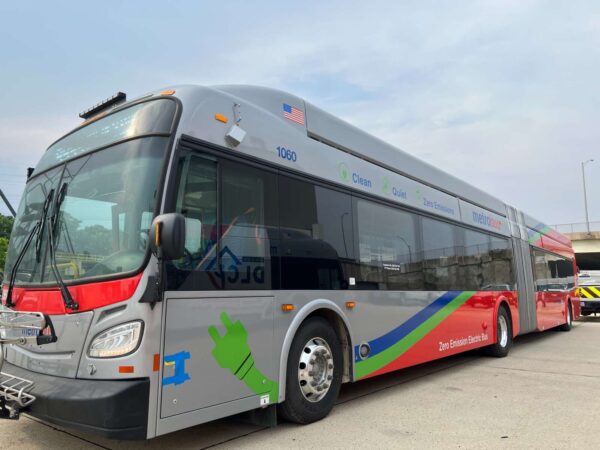
Metro’s bus facility in Franconia is a step closer to going electric, thanks to a big infusion of funding from the federal government.
The Federal Transit Administration has awarded Metro a $104 million grant to convert its Cinder Bed Road Bus Division garage at 7901 Cinder Bed Road into a fully electric facility, the Washington Metropolitan Area Transit Authority announced Monday (June 26).
In addition to supporting new charging infrastructure, the funds will enable Metro to buy about 100 battery-powered buses and develop a training program for drivers, mechanics and first responders, according to Sens. Mark Warner and Tim Kaine, who lauded the grant in a joint statement.
“We appreciate the Federal Transit Administration’s leadership in the transition to zero-emission bus technology that will help reduce air pollution and improve quality of life across the region,” WMATA Board Chair Paul Smedberg said, thanking the senators and other federal, state and local elected officials for helping secure the money.
Metro’s board of directors adopted a plan in 2021 directing the transit agency to purchase only buses that don’t produce carbon emissions by 2030 and fully transition to a zero-emission bus fleet by 2045.
Metro’s first electric bus arrived this month as part of an initial 12-vehicle batch that will operate out of the Shepherd Parkway garage in D.C., according to WMATA. The vehicles were expected earlier, but the delivery got delayed after a fire in Connecticut last summer forced the manufacturer New Flyer to recall hundreds of buses.
Located northeast of the I-95 and Fairfax County Parkway interchange, the Cinder Bed Road garage houses 121 40-foot buses that serve 11 routes, as of December 2021. It has parking for 160 vehicles and 13 maintenance bays.
According to Metro’s transition plan, the facility could host 112 battery-powered electric buses. It has “safe and efficient site circulation,” but a stacked bus parking layout and existing underground infrastructure for utilities and stormwater pose hurdles.
To fully cover the cost of converting the Cinder Bed garage, the federal grant will be matched by “a combination of local funding,” a Metro spokesperson said.
Fairfax County plans to use the facility for its future Richmond Highway bus rapid transit service. Branded as The One, the system will operate all-electric buses from Fort Belvoir to the Huntington Metro station, potentially beginning in 2030.
“Thanks to our partnership with the Washington Metropolitan Area Transit Authority and federal support, we will soon deliver a fully converted battery-electric bus facility in Fairfax County,” Fairfax County Board of Supervisors Chairman Jeff McKay said. “This project aligns with the county’s important goal of carbon neutral government operations by 2040 and is an investment in the region’s transit system and clean energy that will bring significant environmental and community benefits.”
The conversion design process is slated to begin later this year, with a projected opening coming in 2027-2028, according to WMATA’s transition plan. Read More

